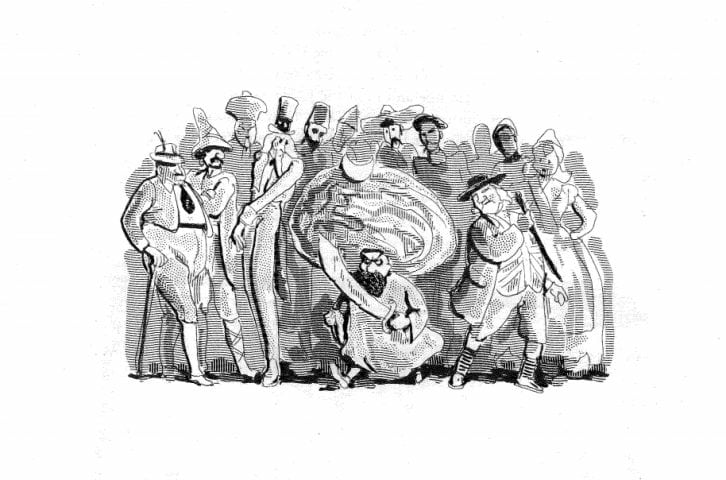It's too early to write the Bush Administration's epitaph, but at the moment the 2006 midterm elections are looking rather grim. The Democrats aren't resurgent, exactly; if anything, they look less formidable than in 2004. But the Republicans are in definite disarray. For the first time since 1994, they seem skittish, diffident, and increasingly divided on domestic as well as foreign policy.
In a way, this is a tribute to their success. Having faced down the Soviet Union, reformed welfare (by eliminating, for the first time since the New Deal, a federal entitlement program), cut tax rates again and again and again, and begun to reform the wayward judiciary, Republicans have accomplished many of the tasks that Ronald Reagan outlined in 1980. Their problem is that these victories have brought them to the threshold of another major battle. Having solved (to the extent that any human problems can be "solved") the immediate problems that precipitated their election, they now face intractable problems and deep-seated disagreements that demand nothing less than a fundamental renewal of conservative statesmanship.
But the ability to see beyond the formulas of the recent past, to deepen the critique of liberalism, to steel conservatism for the uphill fight—these virtues are in short supply among GOP candidates in 2006, not to mention 2008.
Here are some of the hard questions that conservatives now, or at any rate soon will, confront.
Entitlements. President Bush made a valiant run at Social Security reform last year, but his efforts were undercut by his own lack of credibility on the subject. After all, having two years earlier added the first major entitlement program since the Great Society—the Medicare prescription drug benefit—to the federal government's obligations, it was a little late to begin worrying about how to pay for it all. In 2004, Social Security, Medicare, and Medicaid consumed 8.4% of the national economy; by 2030, that figure is projected to rise to 14% or more. If not offset by cuts, the surge in entitlements would raise the federal government's spending from about one fifth to one quarter of gross domestic product, and bring government spending at all levels to almost one half of the economy.
Yet it isn't the cost of entitlements that's the main problem. Far worse is the dependency they breed and the mentality they encourage: that our most important rights come from government, and that rights like these trump all other considerations of the common good.
Keeping government constitutional. The modern regulatory state operates at the borders of constitutionality and often crosses them. From the beginning, there were constitutional problems. Could Congress delegate its legislative powers to rules-writing agencies in the executive branch? The correct answer is No, generally speaking, but since the New Deal the Supreme Court has given its blessing to the practice. Thus today's administrative agencies combine legislative and executive, and often judicial, power in the same hands—the "very definition of tyranny," as The Federalist put it. Still, in most cases tyranny is avoided or at least tempered by congressional oversight and by administrative law, a new kind of law that grew up precisely to restrain the administrative state.
Regulation's costs and inefficiencies are lamentable, but the deeper issue is the Constitution's fading authority. Conservatives need to breathe new life into the separation of powers without succumbing to modern-day abolitionism and calling for the dismantling of all federal agencies. A place to start may be with those agencies that not only regulate but tax on their own authority. The Federal Communications Commission taxes long-distance phone calls, for instance, to meet its own budgetary needs, which—surprise surprise—grow constantly. In a decade, the FCC has increased the tax from 3 to 11%. Republicans need to stand up and say: No taxation without representation.
But the larger task of reconstitutionalizing American government will not be so easy, because it will require a profound rethinking of government's purposes and limits.
Civic education. Important as the debate about immigration policy is, it is much ado about nothing if politics cannot address what immigrants, and citizens as well, are taught about America. The question concerns public schools from kindergarten to the postgraduate level, and raises delicate questions of academic freedom and multiculturalism, which is why Republicans stay miles away from the issue. But it does no good to craft a superior immigration bill if new Americans, like the old, have their patriotism subsequently subverted (whether deliberately or not) in the public schools.
These and many other hard questions lie ahead for Republicans and conservatives. If they cannot come to grips with them, they cannot prevail in the long term as an electoral majority. More importantly, they will forfeit the chance to save their country.


